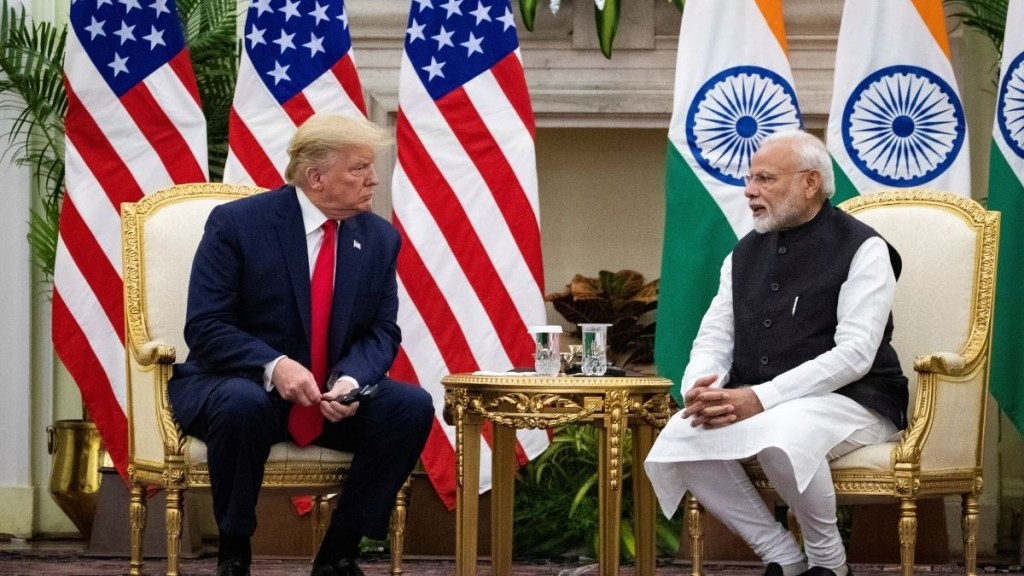Russian oil shipments to India have reportedly seen a major decline following new US sanctions on Moscow’s two major oil firms, Rosneft and Lukoil, according to provisional tanker data cited by The Indian Express. The sanctions, announced on October 22, have left Indian refiners to rethink sourcing strategies ahead of the November 21 deadline, when the new restrictions officially take effect.
The sanctions block Rosneft Oil Company and Lukoil, Russia’s two largest oil companies and their subsidiaries, as part of a US strategy to pressure Russia over its war in Ukraine. These sanctions, including several General Licenses (GLs 126, 127, and 128) are set to expire or be renewed on November 21, 2025.
Sharp drop in Russia’s oil exports to India after US sanctions
According to provisional tanker tracking data from Kpler, Russia’s crude exports to India averaged 1.19 million barrels per day (bpd) in the week till October 27. This is a big drop from 1.95 million bpd recorded over the previous two weeks.
In October, India’s Russian oil imports averaged 1.62 million bpd, slightly higher than September’s 1.61 million bpd, making up 34% of the country’s total oil imports that month.
Since ships carrying Russian oil take nearly a month to reach India, the drop in shipments seems to match the timeline of refiners finishing their deals before the US deadline. Oil deliveries in October were strong because those orders had been placed weeks before the sanctions were announced
The crash in exports comes from the lower dispatches by Rosneft and Lukoil, which together account for more than half of Russia’s total oil production and over two-thirds of India’s Russian oil imports.
According to the report, export from Rosneft dropped to 0.81 million bpd in the week to October 27 from 1.41 million bpd the week before. Lukoil, on the other hand, recorded no shipments to India in that week, down from 0.24 million bpd earlier.
Since the US sanctions currently target only Rosneft and Lukoil, other Russian exporters or intermediaries not directly affected could still route smaller volumes to India.
Indian Refiners Exercise Caution
Indian refiners and banks are concerned about the secondary sanctions the US can impose on non-American entities dealing with blacklisted companies.
HPCL-Mittal Energy (HMEL) has already suspended Russian oil imports. Indian Oil Corporation (IOC), the country’s largest refiner, said it would follow all international sanctions but did not comment directly on its future imports from Russia.
Reliance Industries Ltd (RIL), which accounts for nearly half of India’s Russian oil imports, said it is currently checking the compliance requirements and will follow guidance issued by the Indian government.
Why Russian oil exports will decline further?
Russian oil currently makes up about 35% of India’s total crude imports. Sumit Ritolia, Lead Research Analyst at Kpler, in a statement to the Indian Express, said, “Following the sanctions, we observed accelerated Russian crude arrivals ahead of the deadline. No refiner except Nayara Energy, partly owned by Rosneft, is expected to import from sanctioned suppliers afterwards. Russian crude flows will likely stay around 1.6–1.8 million bpd until November 21, before tapering as refiners avoid OFAC-related exposure.”
Ritolia added that imports are expected to fall in December and January as refiners reassess supply chains. However, a complete halt appears unlikely, “Unless refiners face direct sanctions or the Indian government imposes restrictions—both unlikely scenarios—Russian barrels will continue flowing, though through more complex financial and trading routes,” he said.
Until now, Washington had avoided direct sanctions on Russian oil giants, even while urging India to scale down its purchases from Moscow. India has previously reduced or halted oil imports from other US-sanctioned nations such as Iran and Venezuela, and experts predict same for Russian oil linked to sanctioned entities.
India, which imports nearly 88% of its oil requirements, is likely to turn toward West Asia, West Africa, Latin America, and even North America to fill the gap.
“Refiners are likely to broaden their import baskets, increasing inflows from countries such as Brazil, Argentina, Colombia, Guyana, and others in the Middle East and West Africa,” said Ritolia. “While near-term Russian imports may dip from December onward, Russian barrels will still reach India—just through more indirect routes.”
